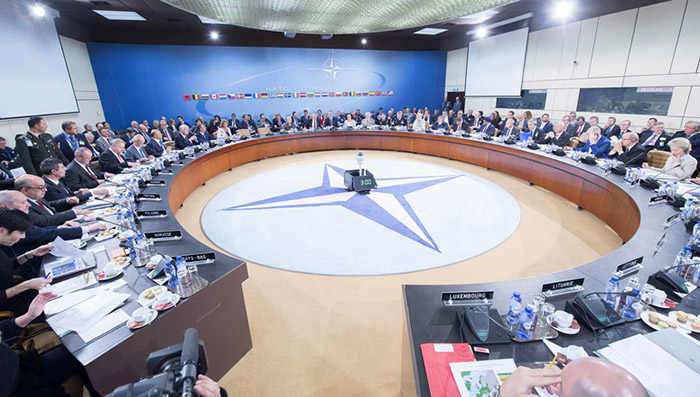NATO Defence Ministers wrapped up two days of talks in Brussels on Thursday, which marked progress in creating four NATO battalions in the Baltic States and Poland, closer cooperation with the European Union and training for Iraqi officers.
“Over the past two days, we assessed the various challenges confronting NATO,” said Secretary General Stoltenberg. “We took stock of our progress since the Warsaw Summit – and we mapped out the road ahead. We are as united as ever in our determination to protect our citizens.”
Ministers discussed measures to strengthen NATO’s deterrence and defence – including the deployment of four multinational battalions to the east of the Alliance in early 2017, led by Canada, Germany, the United Kingdom and the United States.
The Secretary General called the deployment “a transatlantic demonstration of rock-solid support for our Allies.” He also said that the plan is on track, clear evidence that “this Alliance does what it says – and we deliver on our promises.”
Ministers also considered progress on NATO’s presence in the Black Sea region, comprising a Romanian-led multinational brigade. They stressed the importance of cyber in NATO operations and discussed new demands of the NATO Command Structure.
Another important topic of discussion was how NATO can enhance its efforts to project stability in its neighbourhood. In that context, ministers agreed that training and capacity-building of Iraqi armed forces should begin in Iraq itself in January, building on existing training of Iraqi officers in Jordan. The Secretary General called the expanded training mission “an important contribution to the fight against ISIL”.
Ministers also decided that NATO’s new maritime operation Sea Guardian will support the EU’s Operation Sophia, providing situational awareness and logistical support. NATO will have ships and maritime patrol planes available to assist Operation Sophia in the Central Mediterranean within two weeks.
Calling this cooperation “yet another example of NATO and the EU working hand-in-hand to increase European security,” the Secretary General stressed the importance of the two organisations developing closer ties. He also commented on recent initiatives to strengthen European defence, stating that as long as the two seek to complement not duplicate each other “a strong Europe will make NATO stronger.”
Source: Nato.int
NewsVoice publish this unedited pressrelease in order to stimulate debate about the activities and aims of NATO.

 NewsVoice är en nättidning för oberoende nyheter, debatt och analys.
NewsVoice är en nättidning för oberoende nyheter, debatt och analys. 

